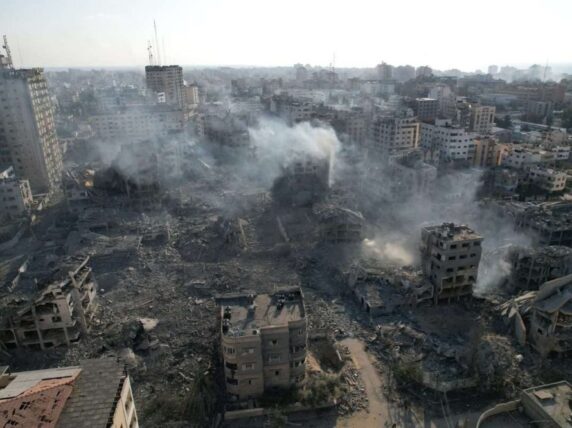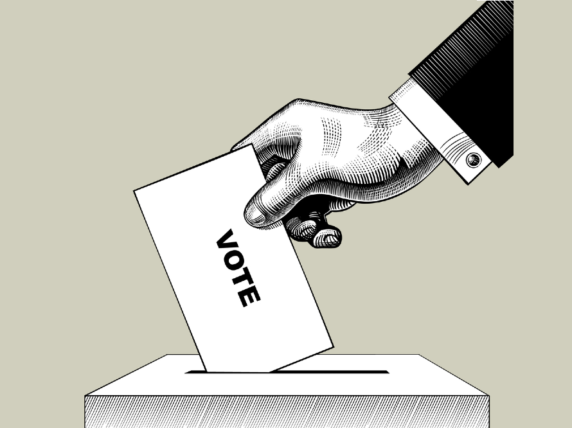What does the Rwanda Plan mean for victims and survivors of human trafficking?
In early March, the House of Lords passed ten amendments to the Safety of Rwanda Bill, prompting a process of parliamentary ping-pong.
The amendments, which included ensuring compliance with domestic and international; requiring the implementation of the UK’s treaty with Rwanda to be fully implemented before Rwanda is declared a safe country, and preventing the removal of victims of trafficking, were subsequently rejected in the Commons. The Lords stood by most of the amendments, and the Commons will again consider the issues after the Easter recess.
The Bill was introduced to prevent further legal challenges to removals on human rights grounds following the UK Supreme Court’s unanimous ruling that the process of deporting people to Rwanda is unlawful and that it would be unsafe to remove asylum seekers and survivors of trafficking to Rwanda.
What does this mean for victims and survivors of human trafficking?
The Safety of Rwanda Bill is core to the UK Government’s immigration strategy, having already passed the Illegal Migration Act, which makes it easier for traffickers to operate with impunity and increases the vulnerability of trafficking victims. The Bill would forcibly remove vulnerable migrants, including victims and survivors of modern slavery, from the UK to Rwanda if they entered the UK by irregular routes, despite a high risk of refoulment, or being forcibly returned to countries where they might face torture and persecution.
These policies can silence victims of human trafficking and modern slavery who may fear expulsion from the country, meaning they stay trapped in exploitation. Those who do escape their traffickers will be forced underground, avoiding authorities or institutions that might have previously supported them, instead becoming at risk of homelessness and re-exploitation.
Forcibly moving vulnerable people to a country with a high risk of refoulment breaches the UK’s international and domestic obligations, specifically the UN Refugee Convention, the European Convention on Action against Trafficking (ECAT), and the European Convention on Human Rights (ECHR).
Trafficking involves moving. This is another move and, to me, echoes the actions of traffickers – to be moved somewhere new, somewhere uncertain and miles away – the fear of something happening there and it’s like there is nothing human – dehumanising and being exported like goods. If only this much effort was used to disrupt traffickers.
Survivor of modern slavery
Article 4 of ECHR and ECAT impose legal obligations on the UK to protect survivors of modern slavery and prevent exploitation. The UK is obliged to establish a ‘spectrum of safeguards [which] must be adequate to ensure the practical and effective protection of the rights of victims or potential victims of trafficking’.
The Bill contradicts the UK’s obligation in ECAT to prevent trafficking through safe migration policies. This legislation will only heighten vulnerability to exploitation. Rather than protecting vulnerable people, the government risks penalising survivors for the actions of those who exploit them. Deporting prosecution witnesses also undermines the prospect of prosecuting criminal gangs.
In attempting to remove individuals to Rwanda, the UK is in effect delegating its international legal obligations. It hopes to pass responsibility to a country which is not a signatory to the ECHR or ECAT, where therefore, there is no accountability structure to monitor and enforce fundamental human rights. Rwanda is categorised by the US State Department’s Office to Monitor & Combat Trafficking in Persons as a ‘tier two’ country which does not meet the minimum standards for eliminating trafficking.
Protecting the rights and wellbeing of survivors of modern slavery, who seek refuge, is vital. This is also essential to successfully disrupting trafficking networks. If survivors can access trauma-informed support, safe accommodation, legal advice and other services, they will be better placed to assist investigations and prosecutions.
Not only does this Bill fail to comply with the UK’s international legal obligations, but it is also morally wrong and counterproductive to the objectives of preventing exploitation, identifying and protecting victims and ensuring that traffickers are held to account.
Phillipa Roberts, Head of Policy and Research (Solicitor) at Hope for Justice, explains: “When one group of people’s human rights are threatened, all our human rights are under threat, so we should all be concerned about this Bill. We need to always remember behind every piece of legislation is a person, in fact, many thousands of people, who have suffered unimaginable horrors and are desperately seeking refuge, safeguarding, protection and support.”
What happens now?
It is critical to the UK’s global standing and credibility in addressing issues of inequality, human rights and the rule of law that this legislation is rejected.
Despite the overwhelming evidence of increased risks and vulnerability to those in modern slavery, the government brought forward the Illegal Migration Bill without consulting with the anti-human trafficking sector. Hope for Justice is concerned that this will also be the case for the Safety of Rwanda Bill.
Moving forward, Hope for Justice urges the UK government to work with civil society organisations, including people with lived experience, and adopt recommendations to protect the most vulnerable and reduce the risks of people smuggling and human trafficking, upholding our international obligations.
Hope for Justice welcomes support from the development sector in calling for peers to remain resolute in protecting those seeking refuge in the UK, including trafficking victims.
This policy of hostility must be replaced by a strategy which puts safeguarding and human rights at the centre.
Read more here Hostility for Survivors, Impunity for Traffickers: How the hostile environment enables modern slavery.
Category
News & ViewsThemes
Politics



